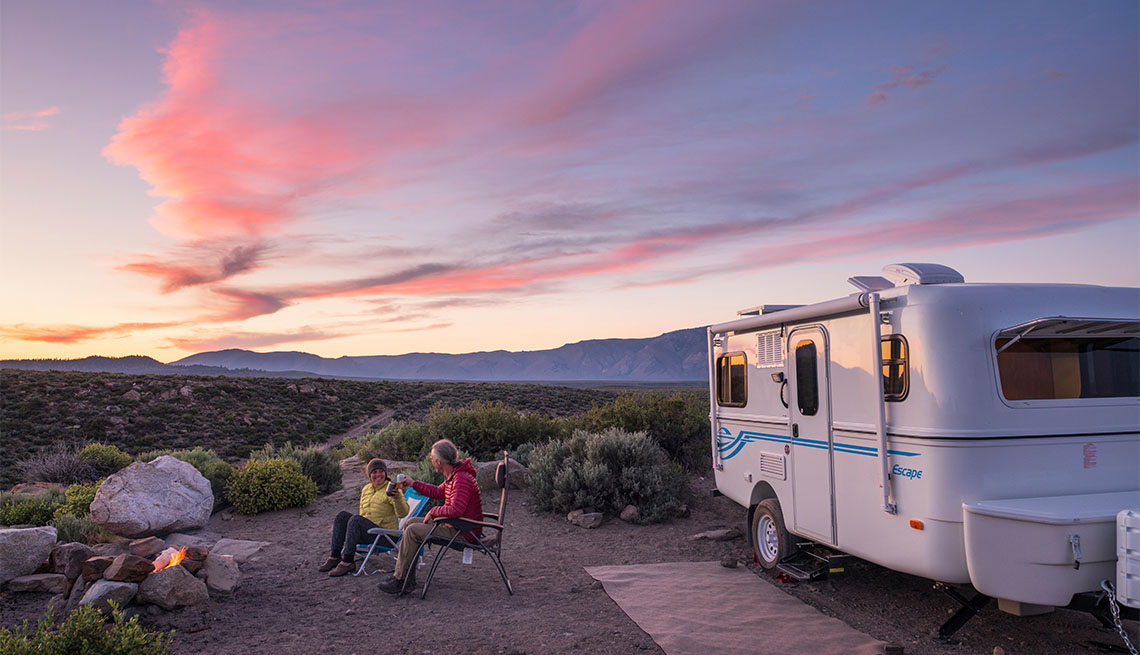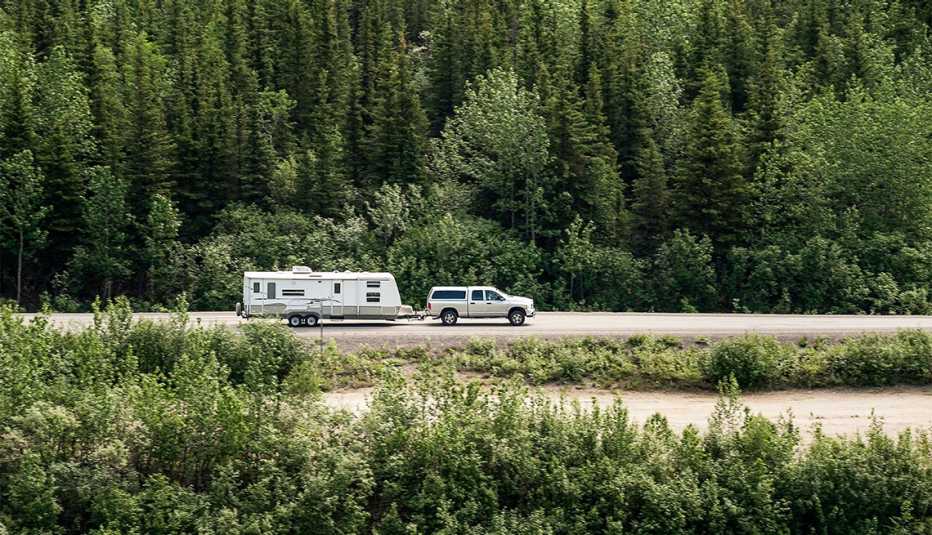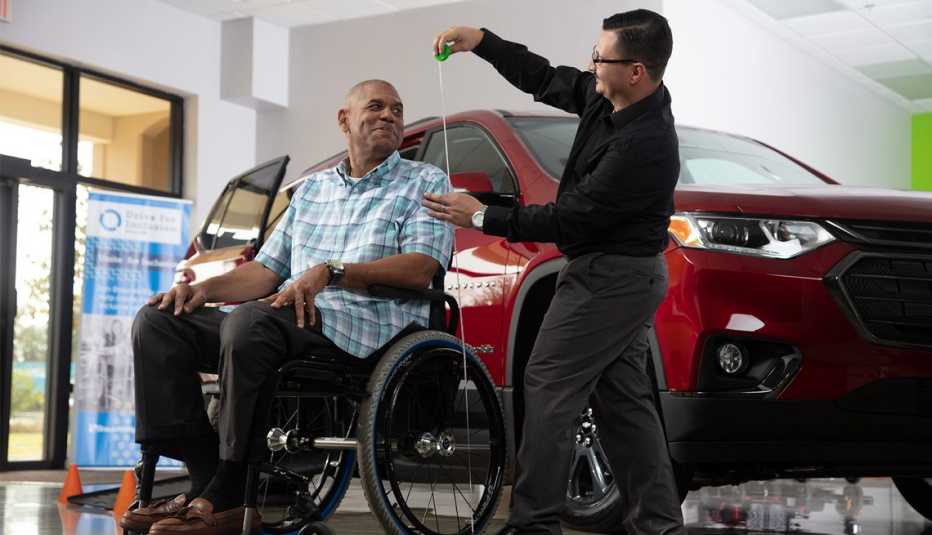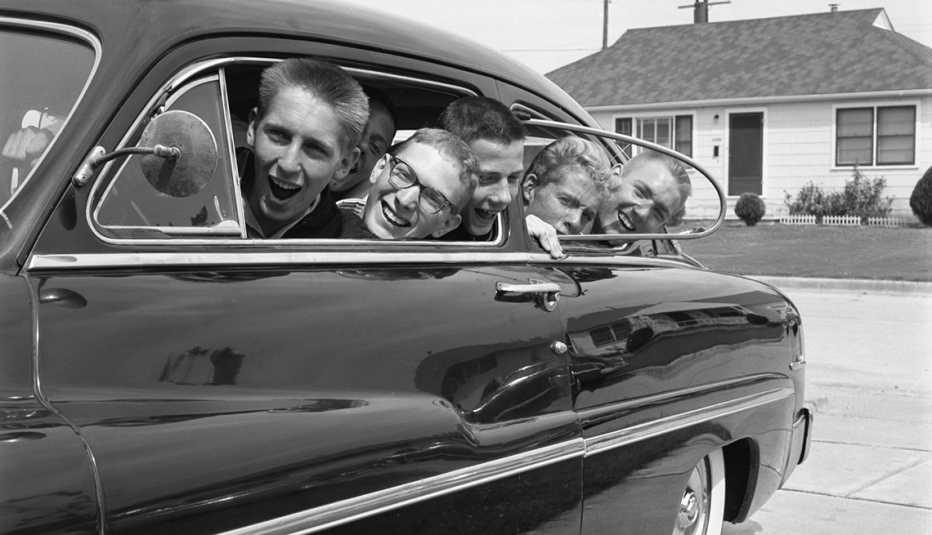AARP Hearing Center
If bare-bones, backwoods tent camping isn't your idea of fun but a 35-foot luxury RV home-on-wheels isn't in the budget either, a middle ground that's comfortable and affordable is likely within reach.
As people have begun to rediscover the outdoors this summer, sales of travel trailers and pop-up campers that you can pull behind your full-sized sedan, SUV or pickup have taken off. Many people 50 and older who spent most of the spring at home trying to keep the coronavirus at bay started to get cabin fever as the weather warmed.


AARP Membership— $12 for your first year when you sign up for Automatic Renewal
Get instant access to members-only products and hundreds of discounts, a free second membership, and a subscription to AARP the Magazine.
"The floodgates really began to open in May,” says Mike Pearo, owner of Hilltop Camper & RV, with three locations in Minnesota. “It's as if some older customers were canceling their European vacations to come to buy RVs."
After a difficult March and April, Pearo's June sales were up more than 30 percent. And July has been trending higher as well, he says.
"The hardest thing now for consumers is finding the product they want on dealer lots,” says Mike Regan, president of Crestview RV Center in Austin, Texas. While he normally has a three-month supply of trailers, he now has about a two-week inventory.
'We don't have to stay in motels’
10 tips for choosing a trailer
1. Do your research online, including a look at dealer reviews, before you head to a dealer.
2. Rent a trailer exactly like the one you want for a week as a sort of test drive.
3. Talk with current owners of the model you like before purchasing.
4. Think about a trailer that may be a bit larger than you want instead of too small.
5. Get a full explanation of how everything in the trailer works.
6. Make certain that the car or truck you already own can tow the trailer when loaded.
7. Ask the salesman to go on a practice ride with you before committing to buy.
8. Accept that the bed will not be as comfortable as your bed at home.
9. Make sure any air-conditioning system you buy with it is hardy enough for hot summer days.
10. Find out about the warranty; most are for one year.
By early June, Richard Fliehs and his wife, Tammy, decided they had spent enough time at home in Jarrell, Texas. Before the pandemic, they traveled often and made regular trips to visit family in South Dakota.
"For my wife, in particular, safety is a big factor,” says Richard Fliehs, 58. They were able to buy a travel trailer that sleeps six — including their four adult children still at home — for less than $16,000. “This way, we don't have to stay in motels, use public restrooms and eat inside restaurants."
Now they can travel to South Dakota to see the family, at least a two-day drive, but not pile into every part of the relatives’ house to sleep. And that will hold true even when post-pandemic life returns to normal.
"We can now stay out of everyone's hair,” he says.
Among the eager first-time purchasers of the smaller trailers are customers like the Fliehses. The average age of a recreational vehicle buyer is about 45 years old, according to the RV Industry Association, which has offices in Elkhart, Indiana, and Reston, Virginia, near Washington, D.C.
"They love the outdoor activity but want control of their environment,” says James Ashurst, executive vice president of the RV Industry Association. Plus “RV campgrounds allow people to social distance while still being outside."
Aliner, a major RV manufacturer with headquarters in Mount Pleasant, Pennsylvania, near Pittsburgh, normally has a four- to six-week backlog of orders. But right now the company is booked until January, says Allan Reeping, director of sales.
"People want to travel in their own isolation units,” he says.
Don't buy before you try. Rent first
The sweet spot for the 50-plus crowd is a smaller, towable recreational vehicle that costs less than $20,000. Used ones can be found for as little as $5,000, says Mike Quincy, auto writer at Consumer Reports.






























































